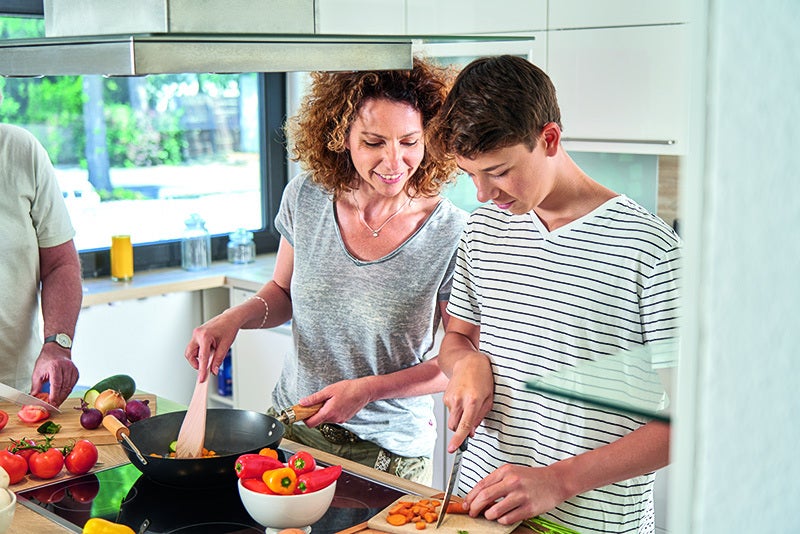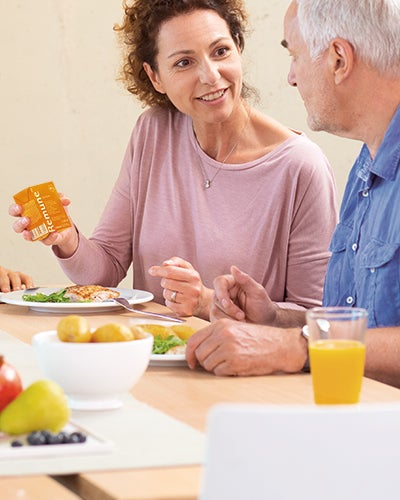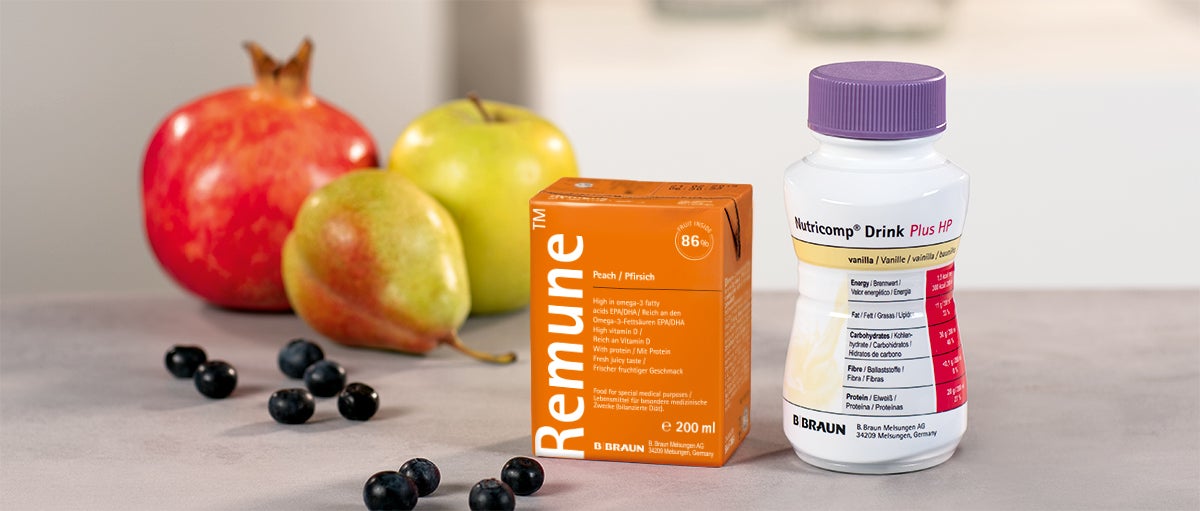The impact of anticancer treatment on your eating habits
Anticancer treatments often affect your daily life and well-being in numerous ways. Some of them will have an effect on your eating habits and appetite, whether directly or indirectly. There are many reasons for this, so it’s important for you to be aware of them.
First of all, although every type of anticancer treatment aims to kill or reduce the cancer cells in your body, your body is a complex system and will be affected in one way or the other. It’s important for you to understand that side effects are part of treatment but can often be treated or at least relieved. Most will go away when the treatment ends.
Can emotions affect your eating habits?
Yes, they can! Strong emotions and mental stress contribute to loss of appetite and the development of eating problems. Have you ever felt such heartache or been so stressed that you had no interest in eating at all? It’s the same with other emotions. Facing the uncertainty of cancer and other illnesses may especially lead us to lose interest in and energy for activities that are usually beneficial to us. It is absolutely normal to feel this way but there are also ways to cope with these emotions – you don’t have to suffer with them.
Typical emotions that affect your eating habits during cancer treatment are:
- Anxiety
- Anger
- Helplessness
- Loneliness
- Depression
Don’t let them get the upper hand. If you feel overwhelmed by them, talk to someone you trust, your doctor, a dietician, a psychotherapist, or your friends and family – together, you will find ways to break free from them! Improve your ability to calm yourself and stop the thoughts from running in circles. Find pleasure in the things you are able or allowed to eat. Talk to people who have already gone through treatment about their impressions and your concerns.
Learn more about the challenges that come with cancer treatment: Many people find it reassuring to know more about the circumstances that may happen. This way, they feel better prepared and less susceptible to the side effects of treatment. You may also try some activities like walking or exercising. But always remember: Your needs are your own. Listen to your body and make sure periods of activity alternate with periods of relaxation. For example, try to get enough sleep at night, enjoy reading a book or watching a movie, and don’t be afraid to ask for help with your daily tasks.
Do you have your own tips and coping strategies? Maybe you want to share them with others.
Are there any side effects?
While not everyone will, most people experience one or more side effects at one stage or another of cancer treatment. Some of them will affect your ability to eat or your appetite. The most frequent side effects are:
These side effects are often caused by the treatment or the cancer itself and sometimes the only way to fight them is with certain medications your doctor will prescribe to you.
Please ask your dietician/nutritionist if the tips you want to try for one or more of the side effects will work for you and are suitable to your nutritional status. Some types of cancer and some treatments may prohibit certain suggestions.
General tips to manage the impact

Create your own tasty meals to improve your nutritional status and better cope with the impact of anticancer treatment.
Most people in cancer treatment are relieved that there are several ways to reduce the impact of side effects on their daily life. From a medical perspective, reducing side effects is important to cope with your anticancer treatment.
- If you don’t like the taste of water anymore, try other drinks or food with high water content. Soup, watermelon and tea contain plenty of water and taste totally different. Sports drinks may come in handy, too. You can also try flavoring plain water with fruit or juice.
- If your food seems to taste bland or stale, try flavoring it with spices and seasoning. Lemon, garlic and tasty herbs have strong flavors that lend themselves well to most meals. If you have to take a sore mouth or throat into consideration, change your diet to meals with no acids or spices until the wounds are healed.
- If you have to bear with unpleasant tastes in your mouth, try chewing gum or mints. Maybe you need to brush your teeth before eating to get rid of bad tastes for mealtimes. If you also have a sore mouth or throat, use a very soft toothbrush.
- If you have difficulty eating three times a day, try six smaller meals instead.
- If you lose interest in meat, find other sources of protein. Fish, eggs, beans, dairy products like cheese, nuts and protein shakes are suitable substitutes. Oral nutritional supplements may be enough, as well.
- If you have difficulty swallowing food, have a sore mouth or throat, or have a gum infection, try blending your food to make your meals smooth and easy to swallow. Oral nutritional supplements may be a suitable option, too.




